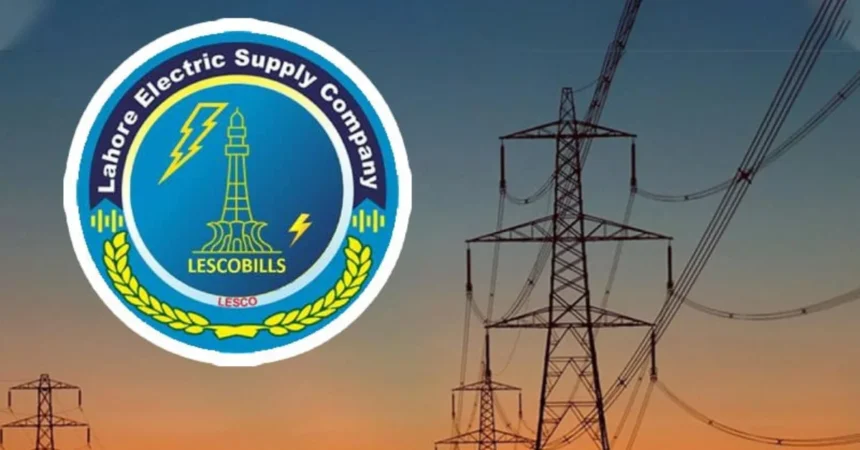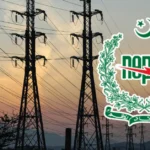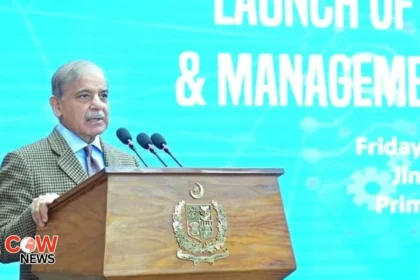The Lahore Electric Supply Company (LESCO) is facing a monumental challenge as it reports a staggering loss of Rs 16.2 billion due to widespread power theft. This alarming figure highlights the persistent issue of electricity theft in Pakistan, which has significant repercussions for the energy sector and the economy as a whole. As LESCO strives to address these challenges, understanding the underlying causes and exploring effective solutions becomes paramount.
The widespread power theft affecting LESCO is not merely a financial issue; it poses a serious threat to the stability of Pakistan’s energy sector. The company’s reported loss of Rs 16.2 billion signifies not only lost revenue but also hampers its ability to invest in infrastructure improvements and service enhancements. As LESCO grapples with these losses, the ripple effects are felt throughout the economy, impacting everything from energy supply stability to the cost of electricity for law-abiding consumers. The situation calls for immediate and comprehensive strategies to mitigate this pressing challenge.
One of the primary drivers of electricity theft in Pakistan is the outdated infrastructure that characterizes much of the energy distribution system. Many areas lack adequate metering and monitoring systems, which not only facilitate theft but also make it difficult for LESCO to track and manage energy losses effectively. Additionally, the social acceptance of electricity theft in certain communities further complicates enforcement efforts. For many, pilfering electricity has become a normalized practice, leading to a culture where illegal connections are overlooked and even supported by local leaders. This cultural aspect needs to be addressed through community engagement and awareness programs to foster a sense of responsibility among consumers.
The government has recognized the issue of power theft and has begun implementing measures aimed at curtailing this rampant problem. These initiatives include stricter penalties for those caught stealing electricity, as well as campaigns to promote legal connections and energy conservation. Additionally, the introduction of advanced metering technology has been proposed, which would allow for more accurate tracking of electricity usage and help reduce instances of theft. Such measures could serve to deter potential offenders and create a more equitable energy distribution environment. However, the success of these initiatives will heavily depend on public cooperation and the effective implementation of regulatory frameworks.
To complement these efforts, LESCO must also enhance its operational efficiency through technology adoption. Implementing smart grid solutions, such as real-time monitoring systems and automated fault detection, could dramatically improve the company’s ability to manage its resources and reduce losses. By investing in technology that allows for more transparent billing and monitoring processes, LESCO can create a more accountable energy distribution system that discourages theft and encourages timely payments. Furthermore, fostering partnerships with technology firms could pave the way for innovative solutions tailored to the unique challenges of the Pakistani energy landscape.
Community engagement plays a crucial role in combating power theft. LESCO has a responsibility to actively involve local populations in discussions about energy consumption and its implications for the broader community. Initiatives such as educational workshops, outreach programs, and collaborations with local leaders can help change perceptions around electricity theft. By informing residents about the negative consequences of power theft—such as increased tariffs for honest consumers and reduced investment in infrastructure—LESCU can inspire a collective effort towards reducing theft. This collaborative approach could not only enhance LESCO’s recovery efforts but also contribute to building trust and accountability within communities.
Overall, addressing the Rs 16.2 billion loss incurred by LESCO due to power theft requires a multi-faceted strategy that encompasses technological upgrades, stricter regulations, community involvement, and cultural shifts. As LESCO navigates these challenges, it has the potential to turn the tide on electricity theft, ultimately leading to a more sustainable and equitable energy future for Pakistan. Through concerted efforts and effective implementation of reforms, LESCO can regain lost ground and foster a culture of accountability that benefits all stakeholders involved.
Understanding the Scale of the Problem
Electricity theft has become a pervasive issue in Pakistan, with LESCO being one of the primary utilities affected. The sheer scale of the losses, amounting to Rs 16.2 billion, reveals a systemic problem that has plagued the energy sector for years. The issue stems from various factors, including outdated infrastructure, inadequate policing, and a lack of accountability among consumers.
1. Infrastructure Challenges
LESCO’s infrastructure has not kept pace with the growing demand for electricity. Many areas are served by aging equipment and distribution lines, making it easier for individuals to tamper with connections. The lack of modern metering technology has further exacerbated the issue, as manual reading processes are more susceptible to manipulation.
2. Socioeconomic Factors
Socioeconomic conditions also play a crucial role in electricity theft. In low-income neighborhoods, many residents resort to illegal connections as a means of survival. The high cost of legal electricity and the frequent power outages can drive consumers to seek alternative means to access power.
3. Regulatory and Administrative Issues
The lack of effective regulation and enforcement by authorities has allowed the culture of electricity theft to flourish. Corruption and collusion between utility officials and consumers often lead to inadequate responses to theft cases, creating a cycle of impunity.
Consequences of Power Theft
The consequences of power theft are far-reaching and impact not only the utility company but also the broader economy and society.
1. Financial Impact
The Rs 16.2 billion loss poses a severe financial burden on LESCO, affecting its ability to invest in infrastructure upgrades and improve services. This loss can lead to increased tariffs for consumers, as the utility seeks to recover lost revenue.
2. Service Quality
Power theft contributes to a decline in service quality, leading to frequent outages and load shedding. This not only frustrates consumers but also hampers economic growth by disrupting businesses that rely on a stable power supply.
3. Public Safety Concerns
Illegal connections can pose significant safety risks. Overloaded lines and improper installations can lead to electrical fires and accidents, endangering lives and property.
Government and LESCO Initiatives
Recognizing the severity of the situation, the government and LESCO have initiated several measures to combat electricity theft.
1. Increased Surveillance and Monitoring
LESCO has ramped up surveillance efforts to identify and penalize those engaging in theft. This includes deploying teams to conduct raids on suspected illegal connections and installing more advanced metering technology.
2. Public Awareness Campaigns
Educating the public about the implications of electricity theft is crucial. Campaigns aimed at raising awareness about the risks associated with illegal connections can help foster a culture of compliance among consumers.
3. Legal Actions
Strengthening legal frameworks to penalize electricity theft can deter potential offenders. The government has proposed harsher penalties for those caught stealing electricity, emphasizing the importance of accountability.
Looking Ahead: Potential Solutions
To effectively address the issue of power theft, a multifaceted approach is required. Here are some potential solutions:
1. Investing in Infrastructure
Upgrading LESCO’s infrastructure is essential to reduce vulnerabilities that enable theft. Modernizing power distribution networks and enhancing metering technologies can help curb illegal connections.
2. Community Engagement
Involving local communities in the fight against electricity theft can lead to more effective solutions. Initiatives that encourage community reporting of illegal connections can create a sense of shared responsibility.
3. Strengthening Regulatory Frameworks
The government should focus on strengthening regulatory frameworks to ensure accountability at all levels. This includes regular audits of utility operations and more stringent penalties for those found guilty of electricity theft.
4. Enhancing Consumer Support Programs
Addressing the root causes of electricity theft often requires tackling socioeconomic challenges. Implementing consumer support programs that offer subsidies or financial assistance for low-income households can reduce the temptation to resort to theft.
The Rs 16.2 billion loss faced by LESCO due to widespread power theft underscores a significant challenge within Pakistan’s energy sector. Addressing this issue requires a comprehensive approach that includes infrastructure investment, community engagement, and strong regulatory measures. By implementing effective solutions, LESCO can work towards not only mitigating losses but also improving the overall quality of electricity services for consumers.
#LESCO #PowerTheft #ElectricityLoss #PakistanEnergyCrisis #Infrastructure #PublicAwareness #CommunityEngagement #RegulatoryReform







